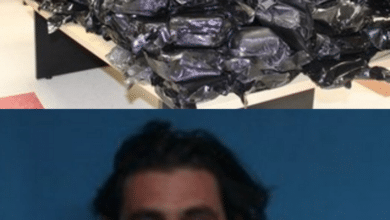Priest applauds reopening of Jesuit massacre case in El Salvador

By Sara Acosta
San Salvador, Jan 7 (EFE).- The order to reopen a criminal probe into the 1989 massacre of six Jesuit priests – five of them Spaniards – and two women is an important step in the fight for justice in El Salvador, Jesuit Father Andreu Oliva said in an interview with Efe.
The Constitutional Chamber of that Central American country’s Supreme Court on Wednesday ordered the relaunching of criminal proceedings after Attorney General Rodolfo Delgado filed an appeal against a resolution to close the case.
That panel of judges, which said Wednesday that “the right of access to justice for the victims had been violated,” gave the court’s criminal chamber 10 days to modify its 2020 resolution that closed the case due to the statute of limitations.
The Constitution Chamber’s ruling, which removes an obstacle to investigating then-President Alfredo Cristiani and a group of senior military officers in connection with the murders, found that the case was not subject to the statute of limitations because the killings could be considered crimes against humanity.
“We were pleased with the decision because it responds to a demand for justice and truth” by the Society of Jesus (Jesuits), the Jesuit-run Central American University (where the massacre occurred) and the families of the victims, said Oliva, the current chancellor of that institution.
On Nov. 16, 1989, amid the biggest guerrilla offensive of El Salvador’s 1980-1992 civil war, a conflict that left some 80,000 dead, Salvadoran soldiers invaded the San Salvador campus of the Central American University and killed eight people.
The victims were the institution’s then-chancellor, Rev. Ignacio Ellacuria, and four other Spanish priests: Segundo Montes, Ignacio Martin-Baro, Amando Lopez and Juan Ramon Moreno, along with Salvadoran Jesuit Joaquin Lopez.
Also slain were a cook, Elba Ramos, and her 16-year-old daughter Celina.
Of the 14 members of the Salvadoran military who stood trial in September 1991 for the murders, only Col. Guillermo Benavides and Lt. Yussy Mendoza were found guilty. Though sentenced to 30 years in prison, they were released thanks to a broad post-civil-war amnesty.
Those amnesty laws were found to be unconstitutional in 2016, however, prompting the return to prison of Benavides and leading to moves to investigate Cristiani and a group of senior military officers.
Oliva said the Constitutional Court’s ruling marks an “important advance in the fight for truth and justice by all of us who are against impunity and believe that truth and justice are essential to building a future of peace in the country.”
He added that now the Attorney General’s Office has the opportunity to investigate and prove the “participation of those accused in the case as (intellectual) authors.”
The potential masterminds of the murders are Cristiani; retired Gens. Humberto Larios, Juan Bustillo, Francisco Fuentes and Rafael Zepeda; the late Rene Emilio Ponce, who was the colonel in charge of the army’s joint chiefs of staff at the time of the killings; and Inocente Montano, a retired colonel and then-deputy defense minister who was convicted of the murders in September 2020 in Spain and sentenced there to 133 years in prison.
“Clearly we’re going to be attentive to ensure the process is carried out in accordance with Salvadoran law and established procedure codes and that things are done well,” Oliva said. “For us, it would make no sense for this case to be used politically.”
He added that he also hopes “it’s not the only case of serious human rights violations, war crimes and crimes against humanity” that is taken up in El Salvador.
“If it’s really determined who organized and decided on the massacre at the university and they’re convicted under our laws, the message that would be sent is that there’s no more impunity in El Salvador and that crimes against humanity and war crimes can be tried,” Oliva said. EFE
sa/mc





